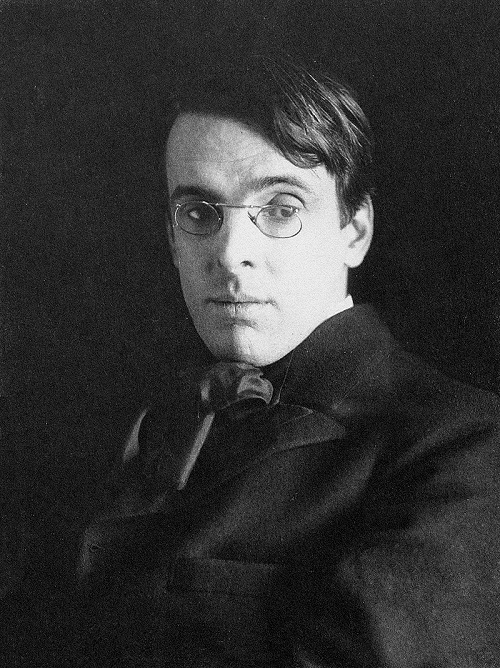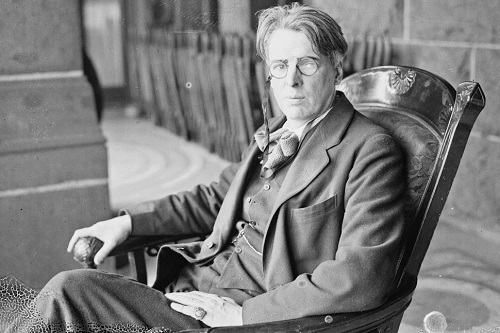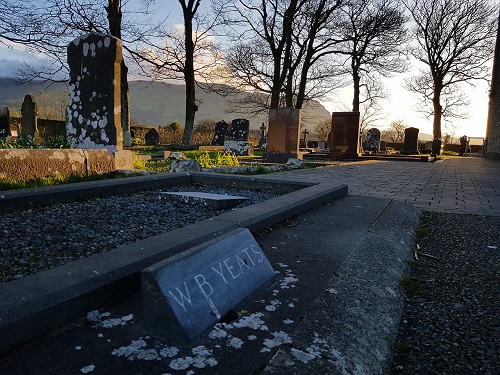William Butler Yeats photographed in 1903 by Alice Boughton
“There are no strangers here; Only friends you haven’t yet met.”
William Butler Yeats
Savior Of Humanity
What a beautiful life given us
A paradise for humans to run
Live forever or turn to dust
Whatever happens it’s what we’ve done
And now that we have reached
The time to choose our destiny
Global unity I do preach
Love the savior of humanity
November 19, 1981
I was driving my taxi in Manhattan on a beautiful summer evening in 1981 when a man flagged me down. When I stopped, a woman and a man of about 60 years of age entered my taxi.
As soon as they were seated, the first thing the man said to me wasn’t what their destination was, but, with an Irish brogue stated, you’re an Irish poet. Astonished, I turned around and said yes, I am an Irish poet. I went on to say both my maternal grandparents were born in Ireland, and my paternal lineage was mostly Irish.
I then asked him, how did you know, within an instant, that I was an Irish poet?
He politely introduced his wife, Gráinne Yeats, and himself, Michael Yeats.
He then said I’m the son of William Butler Yeats.
William Butler Yeats was an Irish poet and playwright. He was one of the foremost figures of 20th-century literature. In 1923, Yeats won the Nobel Prize in literature.
Yeats is one of the few writers whose best work occurred after he won the Nobel Prize. Whereas he received the Prize chiefly for his dramatic works as a playwright, his significance today rests on his poetic achievement.
Throughout my life, no other person has ever told me you’re an Irish poet.
When I was younger, I would tell others I was an Irish poet here to save our species from extinction. As soon as John Denver entered my taxi, he asked me, who are you, Mark? My answer was, I’m an Irish poet here to save our species from extinction. We proceeded to have a wonderful conversation for over an hour.
I’ve always found it incredibly interesting that the first thing that the son of William Butler Yeats, the greatest poet of the twentieth century, said to me was, you’re an Irish poet.
Long ago, I concluded that when seemingly unbelievable occurrences like this happen, you know you’re in the correct time and space and doing the right thing in life.
When You Are Old
When you are old and grey and full of sleep,
And nodding by the fire, take down this book,
And slowly read, and dream of the soft look
Your eyes had once, and of their shadows deep;
How many loved your moments of glad grace,
And loved your beauty with love false or true,
But one man loved the pilgrim soul in you,
And loved the sorrows of your changing face;
And bending down beside the glowing bars,
Murmur, a little sadly, how Love fled
And paced upon the mountains overhead
And hid his face amid a crowd of stars.”
by William Butler Yeats
“The blood-dimmed tide is loosed, and everywhere the ceremony of innocence is drowned;
the best lack all conviction, while the worst are full of passionate intensity.”
William Butler Yeats
Michael Yeats
https://en.wikipedia.org/wiki/Michael_Yeats
Gráinne Yeats
https://en.wikipedia.org/wiki/Gr%C3%A1inne_Yeats
William Butler Yeats
William Butler Yeats (1865-1939) was born in Dublin. His father was a lawyer and a well-known portrait painter. Yeats was educated in London and in Dublin, but he spent his summers in the west of Ireland in the family’s summer house at Connaught. The young Yeats was very much part of the fin de siècle in London; at the same time he was active in societies that attempted an Irish literary revival. His first volume of verse appeared in 1887, but in his earlier period his dramatic production outweighed his poetry both in bulk and in import. Together with Lady Gregory he founded the Irish Theatre, which was to become the Abbey Theatre, and served as its chief playwright until the movement was joined by John Synge. His plays usually treat Irish legends; they also reflect his fascination with mysticism and spiritualism. The Countess Cathleen (1892), The Land of Heart’s Desire (1894), Cathleen ni Houlihan (1902), The King’s Threshold (1904), and Deirdre (1907) are among the best known.
From Nobel Lectures, Literature 1901-1967, Editor Horst Frenz, Elsevier Publishing Company, Amsterdam, 1969. This autobiography/biography was written at the time of the award and first published in the book series Les Prix Nobel. It was later edited and republished in Nobel Lectures. To cite this document, always state the source as shown above.
https://www.nobelprize.org/prizes/literature/1923/yeats/biographical
W. B. Yeats
William Butler Yeats[a] (June 13, 1865 – January 28, 1939) was an Irish poet, dramatist and writer, and one of the foremost figures of 20th-century literature. He was a driving force behind the Irish Literary Revival, and along with Lady Gregory founded the Abbey Theatre, serving as its chief during its early years. He was awarded the 1923 Nobel Prize in Literature, and later served two terms as a Senator of the Irish Free State.
https://en.wikipedia.org/wiki/W._B._Yeats
W. B. Yeats
Yeats was deeply involved in politics in Ireland and, in the twenties, despite Irish independence from England, his verse reflected a pessimism about the political situation in Ireland and the rest of Europe, paralleling the increasing conservatism of his American counterparts in London, T. S. Eliot and Ezra Pound. His work after 1910 was strongly influenced by Pound, becoming more modern in its concision and imagery, but Yeats never abandoned his strict adherence to traditional verse forms. He had a life-long interest in mysticism and the occult, which was off-putting to some readers, but he remained uninhibited in advancing his idiosyncratic philosophy, and his poetry continued to grow stronger as he grew older. Appointed a senator of the Irish Free State in 1922, he is remembered as an important cultural leader, a major playwright (he was one of the founders of the famous Abbey Theatre in Dublin), and as one of the greatest poets in any language of the twentieth century.
by Poets.org
https://poets.org/poet/w-b-yeats
William Butler Yeats
William Butler Yeats is widely considered to be one of the greatest poets of the 20th century. He belonged to the Protestant, Anglo-Irish minority that had controlled the economic, political, social, and cultural life of Ireland since at least the end of the 17th century. Most members of this minority considered themselves English people who happened to have been born in Ireland, but Yeats staunchly affirmed his Irish nationality. Although he lived in London for 14 years of his childhood (and kept a permanent home there during the first half of his adult life), Yeats maintained his cultural roots, featuring Irish legends and heroes in many of his poems and plays. He was equally firm in adhering to his self-image as an artist. This conviction led many to accuse him of elitism, but it also unquestionably contributed to his greatness.
by Poetry Foundation
https://www.poetryfoundation.org/poets/william-butler-yeats
W. B. Yeats Quotes
https://www.goodreads.com/author/quotes/29963.W_B_Yeats
William Butler Yeats Quotes
https://www.azquotes.com/author/16044-William_Butler_Yeats
W. B. Yeats
June 13, 1865 – January 28, 1939
Grave At Saint Columba’s Church, Drumcliff, County Sligo, Ireland
“The world is full of magic things, patiently waiting for our senses to grow sharper.”
William Butler Yeats
John Denver
Love Is Why I Came Here In The First Place
by Mark R. Elsis
https://EarthNewspaper.com/JohnDenver
To One Of Love
Optimism we need
Instead of the greed
Hope is the seed
If we want to lead
This world of chaos
To one of love
by Mark R. Elsis
December 12, 1981
Resonate Love
144 Poems
by Mark R. Elsis
https://ResonateLove.net
Subscribe To The MeetingsAndStories.com Newsletter
https://MeetingsAndStories.com/Subscribe
Support My Book Meeting and Stories
https://MeetingsAndStories.com/Donate
Meetings and Stories
The Wondrous Journey of My Life
by Mark R. Elsis
https://MeetingsAndStories.com



